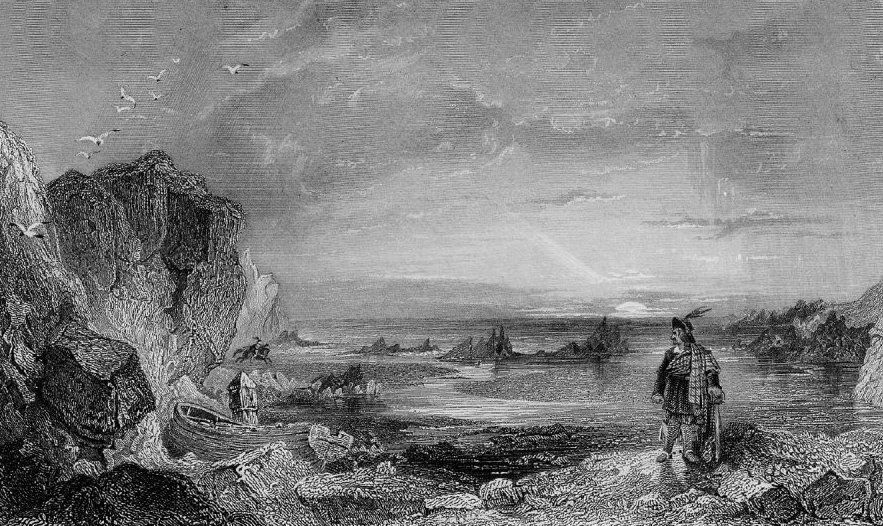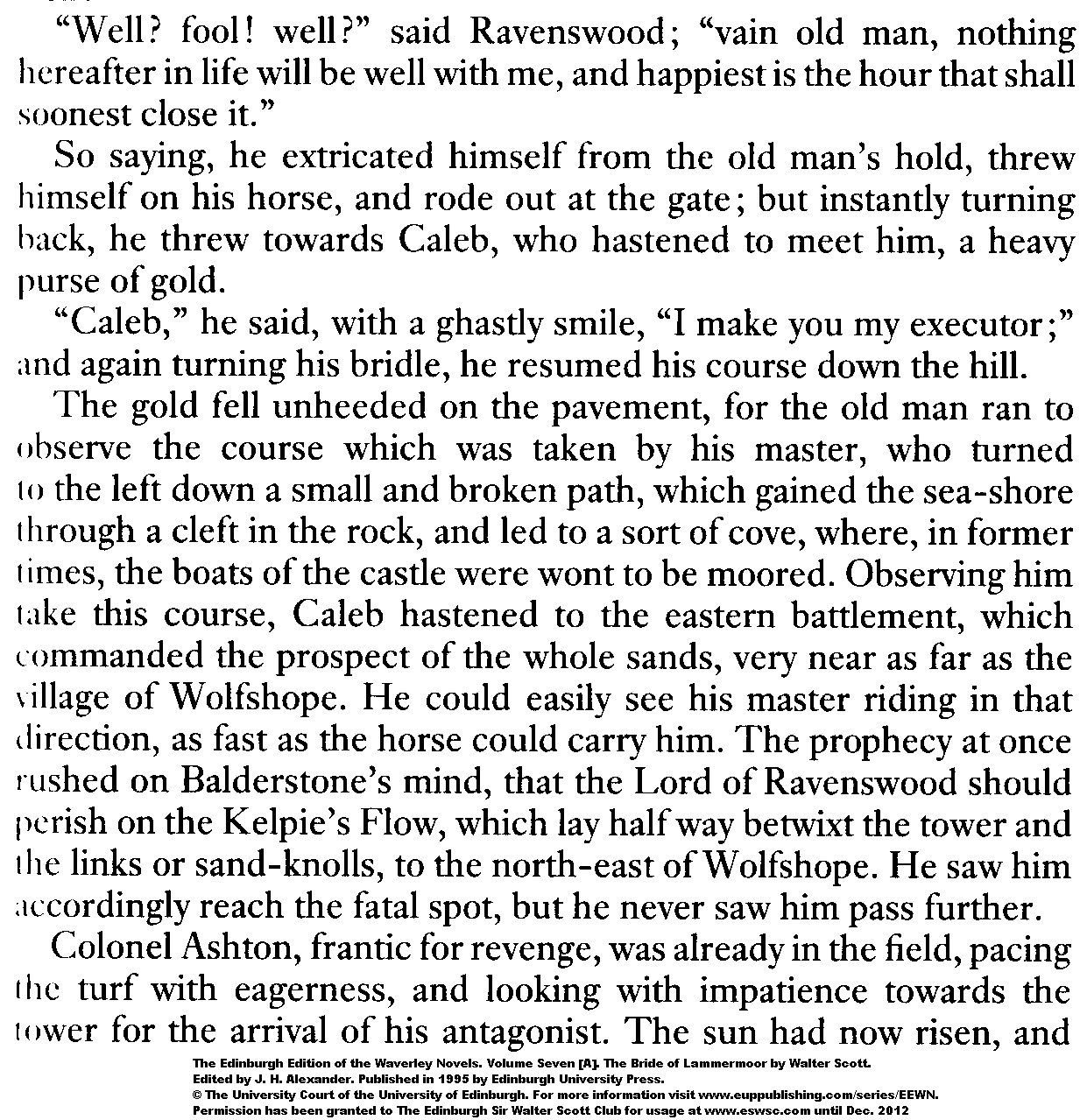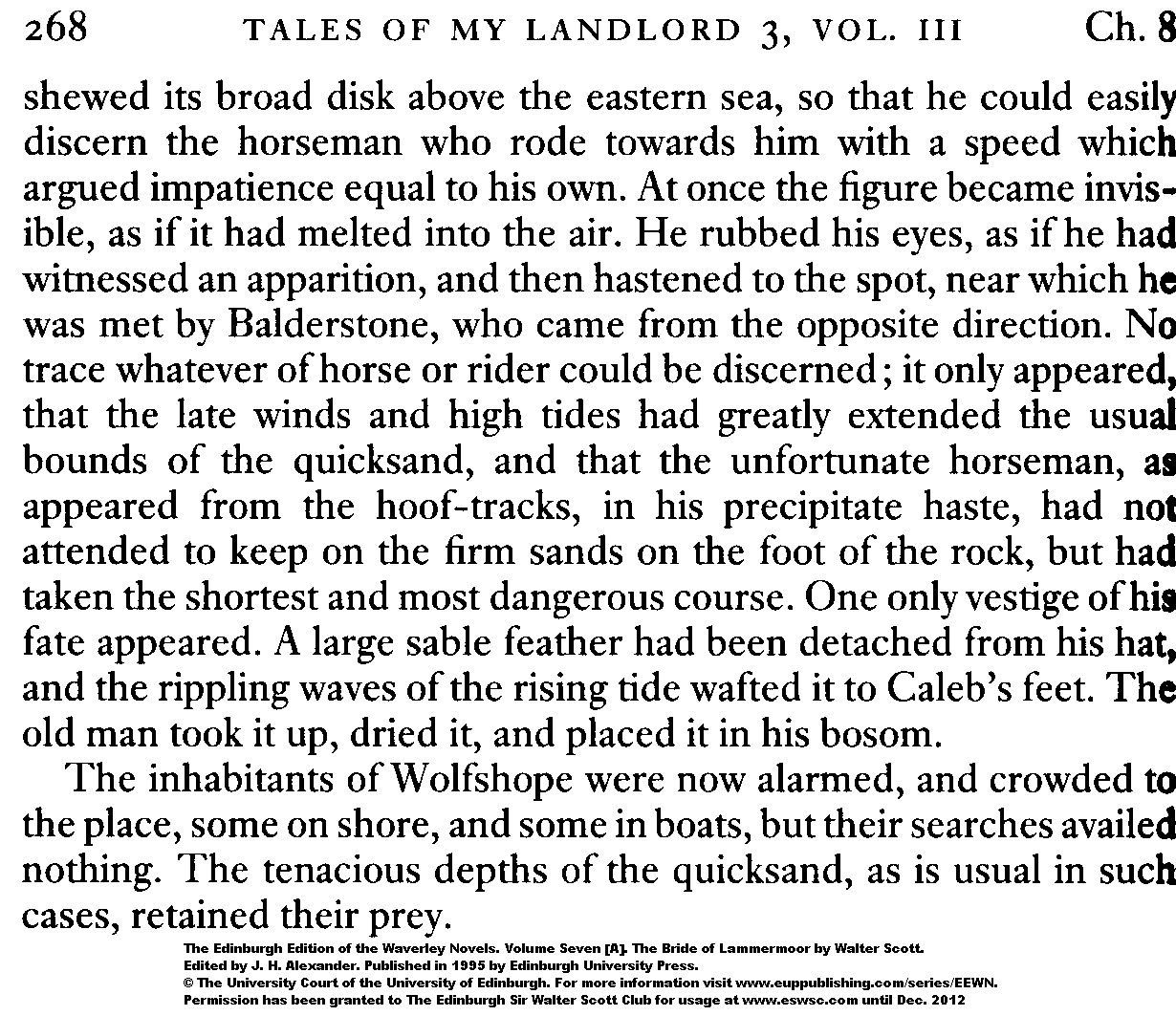Reading Sir Walter:
The Bride of Lammermoor
(Chapter 35) The Ending
Read by Professor Penny Fielding
The passage comes from The Antiquary (1816), a novel set in July and August 1794. In it Jonathan Oldbuck, the Antiquary of the title, bargains with Maggie Meiklebackit for the purchase of fish. The two speakers are characterised by their forms of speech, Oldbuck uttering something rather more educated than Maggie, and yet both accommodating each other, adjusting what they say and how they say it. They represent different class attitudes to work and remuneration: 'It's no fish ye're buying—it's men's lives'. The gender difference is also a factor in their bargaining, for Oldbuck is rather more generous to Maggie than his sister would have been. Their respective views of drink illuminate a divergence in both their class and their religious perspectives. Yet the reference to the government's banning of whisky distilling brings in a political context which silently unites them in a kind of opposition to the British government. Though they differ, Maggie's views do not challenge Oldbuck's social position as laird, and Oldbuck's acceptance of his social responsibilities result in his paying Maggie half-a-crown for a couple of fish and some crabs when the average daily male agricultural wage in the county of Angus in 1794 was under 1s. It is brilliant dialogue: the argument moves to and fro, and, as it does, Oldbuck is uncovered as naive and generous, ignorant and wise, while Maggie's rhetoric has great moral force.
November 2009

The Links of Eyemouth. 1836 Steel engraving by Robert Staines based on a painting by Henry Melville.
Image used here with the permission of the [Walter Scott Digital Archive Image Collection].




